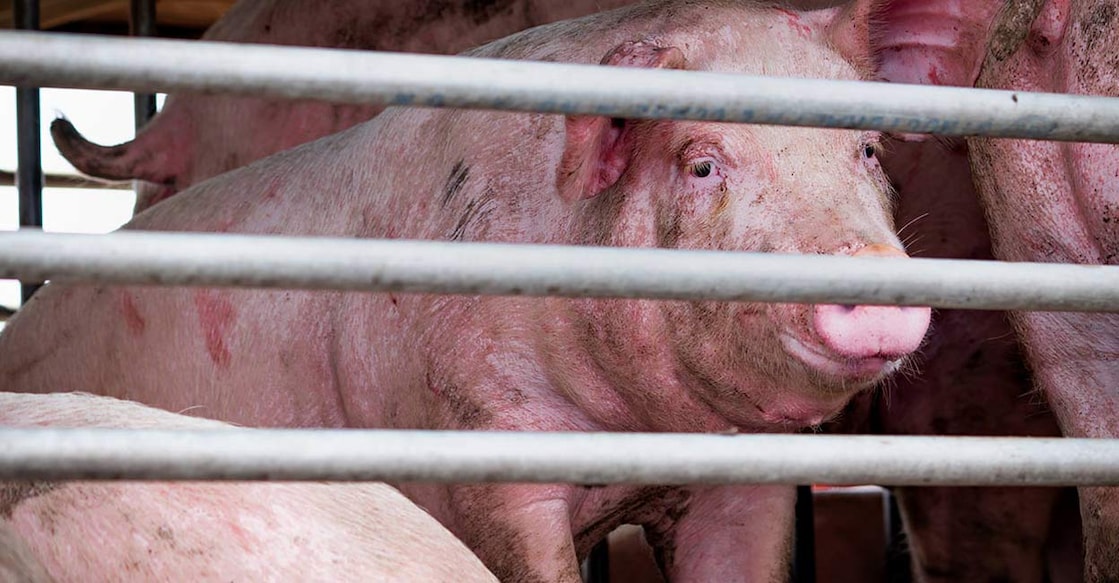African swine fever hits pig farm in Kasaragod, 532 pigs to be culled

Mail This Article
Kasaragod: The Animal Husbandry Department will on Friday begin culling 532 pigs on a farm after 70 animals died of African swine fever in the past 10 days at Katukukke, a border village in Enmakaje grama panchayat.
Farm owner Manu Sebastian (32) said he would incur a loss of around Rs 1 crore if the government did not compensate him.
African swine fever is a highly contagious viral disease found in pigs and wild boars but it will not be transmitted to humans and other domestic animals, said District Animal Husbandry Officer B Suresh.
The disease can be transmitted through contaminated food and certain types of ticks, he said. No vaccine or effective treatment has yet been found for the disease.
Collector in-charge Additional District Magistrate A K Ramendran said steps were being taken to prevent the spread of the disease. The area has been turned into a containment zone.
According to the National Action Plan, pigs within a radius of one kilometre from Sebastian's farm will be culled. The police will check vehicles to ensure no pigs, pig meat, pig meat products, and pig manure are transported to or from the area within 10 kilometres of the epicenter.
Sebastian said his farm had a capacity of only 200 to 250 pigs. "But for the past four months, there were no sales because of reports of African swine fever from other districts," he said.
The number of pigs in his two-year-old farm increased to over 500. "But we were not allowing any outsider to enter the farm. Not even vehicles of the buyers to keep the pigs isolated," he said.
But starting in January, his pigs started falling sick and dying. "I lost around 70 pigs in the past 10 days," he said.
On January 7, officials of the Animal Husbandry Department conducted autopsies and sent samples to a high-security lab in Bhopal. The tests confirmed it was ASF, said Suresh.
Pigs will be stunned before killing
No vaccine or effective treatment has yet been found for the disease. The only way to stop the spread is to kill and dispose of the infected pigs, said Suresh in a statement.
The disease was first discovered in Kenya in 1921. In India, the disease was reported in January 2020 in the northeastern states of Assam and Arunachal Pradesh.
Symptoms include high fever, loss of appetite, weakness, diarrhea, nausea, shortness of breath, and red spots on the body. Death can be sudden.
The culling of the pigs on Sebastian's farm would begin on Friday. The animals would be stunned before they are bled to death to avoid pain.
The District Animal Husbandry Officer would form a Rapid Response Team to scientifically dispose of the pigs culled within a kilometre radius of the farm in Katukukke. The departments of Motor Vehicles, Fire and Rescue, and Revenue would provide the necessary support, said the official statement. Kasaragod Revenue Divisional Officer would coordinate the activities, it said

